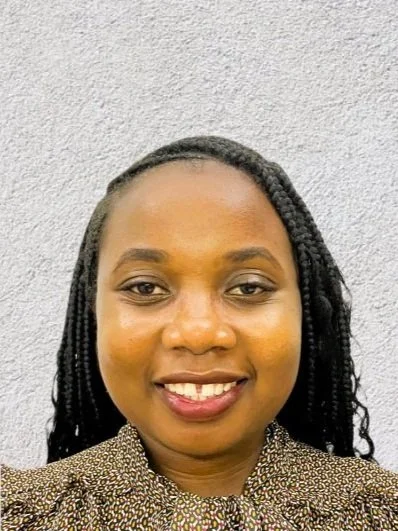
Have conversations that leave you feeling seen, heard, and respected.
Our primary goal is to transform conversations.
While everyone knows how to communicate, not everyone is excellent at it. Ask anyone, and you will hear personal stories about how communication impacted their job, relationship, or health. The good news is that effective communication is a skill that anyone can hone. With knowledge, modeling, and practice, everyone can be a culturally and ethically competent communicator.
Vision Statement
To cultivate a culture of compassionate communication that transforms difficult conversations into opportunities for connection, healing, and trust.
Mission Statement
Our mission is to empower professionals, caregivers, and patients with the tools and skills to navigate difficult conversations through empathy, active listening, and conflict resolution. By fostering emotional awareness and clarity, we aim to improve the quality of care, strengthen relationships, and promote well-being for all involved in challenging interactions.
The Compassionate Approach
At the heart of our company lies The Compassionate Approach, a set of core values that guide every interaction we foster. Rooted in empathy, respect, and understanding, this approach shapes how we communicate, collaborate, and care for one another. We believe that compassion is more than a sentiment—it is an actionable commitment to building trust, promoting inclusivity, and strengthening relationships. Whether addressing complex challenges or celebrating shared successes, The Compassionate Approach ensures that every conversation is anchored in kindness and clarity. By embracing these values, we aim to create environments where people feel heard, valued, and supported, empowering both our team and those we serve to thrive.
Meet The Team
Malynnda Stewart, PhD (she/her) is a board-certified patient advocate, trained conflict mediator, and the CEO of Compassionate Navigation, LLC. With over two decades of experience, she helps individuals and organizations navigate emotionally charged conversations—whether in clinical settings, classrooms, or the workplace. Her work bridges the worlds of conflict resolution and health communication, grounded in the belief that effective, compassionate dialogue is key to trust, clarity, and equitable outcomes.
Her previous experiences as a professor of conflict resolution, health communication, cultural communication, and interpersonal dialogue, Malynnda brings both academic depth and real-world application to every engagement. She specializes in helping people communicate across differences, manage tension with empathy, and advocate effectively in moments that matter most—whether that’s a difficult conversation at work or a critical decision in healthcare.
Malynnda also hosts the podcast Communication Compass, which is dedicated to helping individuals and organizations strengthen their communication skills in challenging situations. Her work empowers people to engage in meaningful, solution-focused discussions that lead to better relationships, improved well-being, and more inclusive environments.
Nikinzie Krstich, MA (she/her) holds a Bachelor’s degree in Psychology and Health Communication, along with a Master’s degree in Communication, where her research focused on grief and the grieving process.
Through her studies, she developed a deep understanding of how grief affects us emotionally, physically, and socially. She is passionate about helping individuals navigate this experience with compassion and clarity. Whether it’s understanding the different types of grief, learning how to express difficult emotions, or finding healthy coping strategies, she offers support and education rooted in both research and empathy.
Outside of this work, she is someone who finds joy in simple things. She loves reading, spending time outdoors, exploring new ideas, and connecting with animals. These interests keep her grounded and remind her daily of the beauty and resilience in life, even through loss.
Her goal is to create a space where people feel seen and supported in their grief journey and to help them move forward with understanding, patience, and care.
Sam Moon (they/them) is a dedicated public health professional with a passion for advocacy and education. They earned their Bachelor’s degree from Indiana State University in 2022 and have spent the past three years working in public health. Most recently, they became a certified Community Health Worker, further strengthening their commitment to community support and healthcare access.
As a Health Educator at IU Health Positive Link, Sam specializes in HIV testing and education, providing essential services to diverse populations. Their work has allowed them to engage with individuals from all walks of life, fostering meaningful connections and promoting inclusive healthcare. In addition, Sam serves as a leader for IU Health’s employee resource group, which supports LGBTQ+ employees and advocates for a more inclusive workplace.
A passionate advocate for transgender healthcare, Sam brings both professional expertise and lived experience to their work. As a genderqueer individual, they have navigated the healthcare system firsthand and have been a dedicated support system for their partner, a trans man, throughout his medical transition. These experiences have deepened their understanding of the communication challenges between patients and healthcare providers, shaping their role as a patient advocate.
Outside of work, Sam enjoys reading, playing video games, and attending community theatre productions with their partner. They also stay busy caring for their two beloved dogs, Moss and Maple.
Sarah S. LeBlanc, Ph.D. (she/her) is an Associate Professor of Communication with expertise in family, health, and interpersonal communication. She holds a Ph.D. from the University of Missouri and a certificate in Reproductive and Sexual Health from Indiana University.
Because of her experiences in various health care systems, Sarah focuses on helping others find their voice within the doctor’s office. Within her classes, she teaches students how to communicate effectively with doctors about their health issues, as well as how to actively listen to what is being said and what is not. She works within the community to educate parents about how to communicate about puberty issues, especially menstrual communication.
Sarah brings professional knowledge and lived experience to help others navigate difficult conversations within family and healthcare systems. Her experiences within the classroom and as a late-in-life mother of 2 girls inspire her to challenge the stigma and taboo surrounding women’s health issues.
Dr. Natasha A. Rascon (she/her) serves as an organizational leadership and crisis communication expert with a passion for applying communication strategies to high-stakes situations. As an Assistant Professor of Communication and Director of Graduate Studies at Indiana State University, she specializes in crisis response, organizational leadership, and effective communication for diverse populations.
Dr. Rascon’s research and consulting work focuses on enhancing communication strategies for leaders, first responders, healthcare teams, and educators. She has developed frameworks to improve crisis preparedness, facilitate decision-making under pressure, and create inclusive communication practices. She is the author of a research manual based on the Coordinated Management of Meaning (CMM) and has published extensively on co-constructed meaning and strategic crisis messaging.
An active leader in the National Communication Association (NCA), Dr. Rascon serves on the Leadership Development Committee and as Treasurer for the Communication as Social Construction division. She also serves as a Faculty Associate at the Global Health Communication Center at Indiana University, Indianapolis.
Dr. Rascon offers consulting services to organizations seeking to strengthen leadership communication, improve crisis response, and foster inclusive workplace cultures. Her expertise is informed by both professional experience and her role as a mother to three neurodivergent children, inspiring her advocacy for effective and compassionate communication.
Dr. Mary Kiura (she/her) is an expert in organizational communication and change leadership, with a deep commitment to helping individuals and teams communicate with clarity, confidence, and compassion. With a Ph.D. in Communication from Arizona State University and a global consulting portfolio, Mary brings a powerful blend of academic insight, corporate experience, and culturally responsive strategies to her work.
She has partnered with clients across the U.S. and internationally on a wide range of organizational needs, including onboarding and change management, employment negotiations, workplace conflict, and team communication strategy. Her approach is informed by years of research and grounded in data-driven practices that are scalable, sustainable, and people-centered.
At Compassionate Navigation, Dr. Kiura supports clients in improving organizational communication, strengthening employee engagement, and navigating complex transitions. She is especially passionate about helping leaders and teams align their communication with their values, goals, and people.
In addition to her consulting work, Dr. Kiura serves as an Assistant Professor at Purdue University Fort Wayne, where she teaches organizational communication, small group and team dynamics, conflict and negotiation, intercultural communication, and statistics. Her research and teaching continuously inform her client work, creating a synergy that allows her to deliver thoughtful, innovative, and effective strategies.
Outside of work, Mary finds joy in the kitchen, experimenting with new recipes and sharing good food with loved ones.






